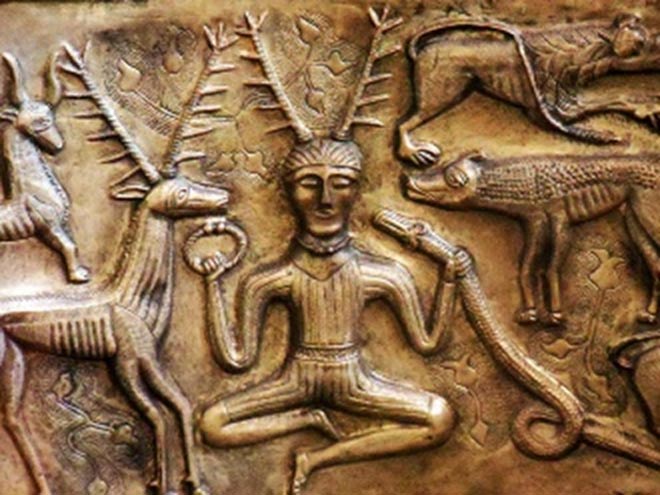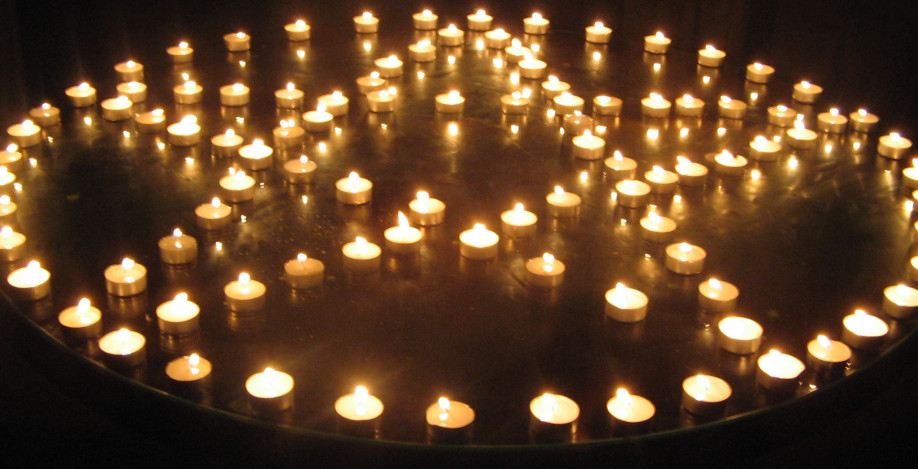Costa Rica News – Think paganism, and you probably don’t think of a conservative, Catholic-majority country in Central America. But Costa Rica, with its beautiful beaches and tropical charm, is emerging as an unlikely base for a growing pagan movement battling stereotypes and discrimination to assert its distinct identity. Denied the status of adhering to an official religion, pagans here have long been pushed to the fringes of society. Now, they’re pushing back, and publicly.
Costa Rica’s indigenous communities have long practiced animism, but it was only in 2010 that the first formally organized pagan group, Kindred Irminsul, was formed. At least six more such pagan groups formed in the following three years. Since 2012, the multiple pagan groups have banded together to form broader partnerships. There’s the Asociación Ásatrú Yggdrasil de Costa Rica, a group self-described as “dedicated to ancient Nordic and Scandinavian religious practices.” Its membership has grown by 60 percent since 2013, says 31-year-old Esteban Sevilla, the group’s president. There’s also the Pagan Alliance of Costa Rica, which consists of Asatruar, Roman Reconstructionists, Wiccans and Druids.
Sevilla’s Asociación has nearly 2,700 followers on Facebook, while the Pagan Alliance has just short of 1,600. These numbers are small, even in a country of just 4.3 million people. But in a country where, according to the U.S. State Department, animism remains common among traditional communities, these growing numbers and the increase of  organization among pagans are giving leaders of pagan communities hope for a future where they’ll be accepted as part of the mainstream.
organization among pagans are giving leaders of pagan communities hope for a future where they’ll be accepted as part of the mainstream.
For the moment, pagans in Costa Rica remain threatened — some have suffered physical violence, others have had their practices disrupted. Sevilla knows pagan practitioners who have had their employment terminated suspiciously, when their beliefs were revealed at the workplace. But Costa Rica’s pagan groups aren’t retreating. Since 2013, they’ve organized Pagan Pride Day marches. The alliances of groups are petitioning the government for formal recognition of paganism as a religion. Since 2011, Prolades, a respected survey group that focuses on Latin American religious studies, has included paganism in its list of Costa Rican religions. For pagan followers, the struggle is also about reclaiming the essence of Costa Rica’s soul — captured in the phrase pura vida, which visitors will find everywhere in the small nation.
“It’s a religion that doesn’t force you to be anything other than what you are,” says Sevilla.
A combination of beliefs, cult religions and sects that don’t fit into the major religious structures, paganism is hard to define. That’s partly why the number of active pagan followers in Costa Rica remains unclear. But the fluidity of what constitutes paganism is also what makes it appealing to many, suggests Sally Gamboa, who heads the Pagan Alliance of Costa Rica. It encourages responsibility for actions “without the need to resort to intermediaries,” she says. That pagan beliefs are often less judgmental about their followers than mainstream religions are also makes them attractive. “People don’t want to feel oppressed by their faith, they want to feel free,” says Sevilla. “Paganism doesn’t shame you for being imperfect.”
That allure is increasingly driving paganism in places as diverse as Lithuania, where followers of Baltic religions have quadrupled since 2001, and American college campuses. Syracuse University appointed its first pagan chaplain in 2010. Institutions ranging from the University of Texas and University of Baltimore to MIT and Loyola University Chicago have pagan student organizations. The number of Ásatrú worshippers in Iceland has gone up by 50 percent since 2014, according to the country’s national statistics bureau.
In Costa Rica, a country where more than three-fourths of the population identifies as Catholic, paganism also offers a way to push the envelope, to rebel, concedes Gamboa. To 46-year-old pagan practitioner Adrian Esquivel, it’s a way to “live in peace with the gods.”
As with many other new or revived movements, Costa Rican pagans rely on social media to stay connected. Facebook pages like Festividades Paganas/Runas de Costa Rica, Wicca en Costa Rica and Esoterica Costa Rica, which combined have thousands of unique likes, allow followers of one faith to celebrate, interact and learn about other pagan beliefs.
This emerging pagan movement continues to face major challenges. Discrimination against pagans remains rampant. Sevilla recalls a traditional naming ceremony in a public park, during which police were called because the group was alleged to be “performing satanic rites.” The altercation, according to Sevilla, almost got the group removed from the park. He knows pagan practitioners who have suffered serious physical violence after they publicly declared their beliefs. “There is absolutely discrimination against pagans, as we live in a Catholic country,” says Gamboa, echoing Sevilla. “The discrimination can be all over, it can be in work, social exclusion or in the family.” Discrimination within one’s family usually comes from older, more conservative members. The youth, says Sevilla, are excited by the new pagan movement.
Petitioning the government for a formal religious status is not cheap. There’s the cost of hiring lawyers to read over the paperwork, and the fees of submitting applications. Sevilla notes it could cost his group $1,000. “We’re working on it,” he says, “but it’s expensive.” The review process is long and bureaucratic. Sevilla and his colleagues need to prepare a statement detailing their activity, get a minimum of 50 member signatures — but the more signatories, the greater the likelihood of approval — and then draft and present the religious organization’s statutes. The government can then take its time vetting the request.
Still, the benefits of formal recognition aren’t insignificant. Though non-Catholic religions must meet stricter regulations than Catholics, their bodies don’t have to pay taxes, they have a vote at the annual gathering of religious associations, and they can, in theory, enjoy “legal visibility and representation” in government, says Sevilla. But Costa Rica’s pagan followers have more driving them than the prospect of recognition. Esquivel says he feels “free” now. “I’ve stopped living in fear,” he says. “Most important, I’m not living by a book.”
BY JULES FRANCO, OZY

